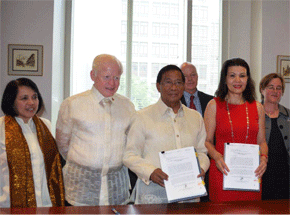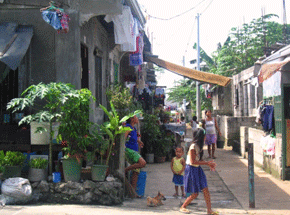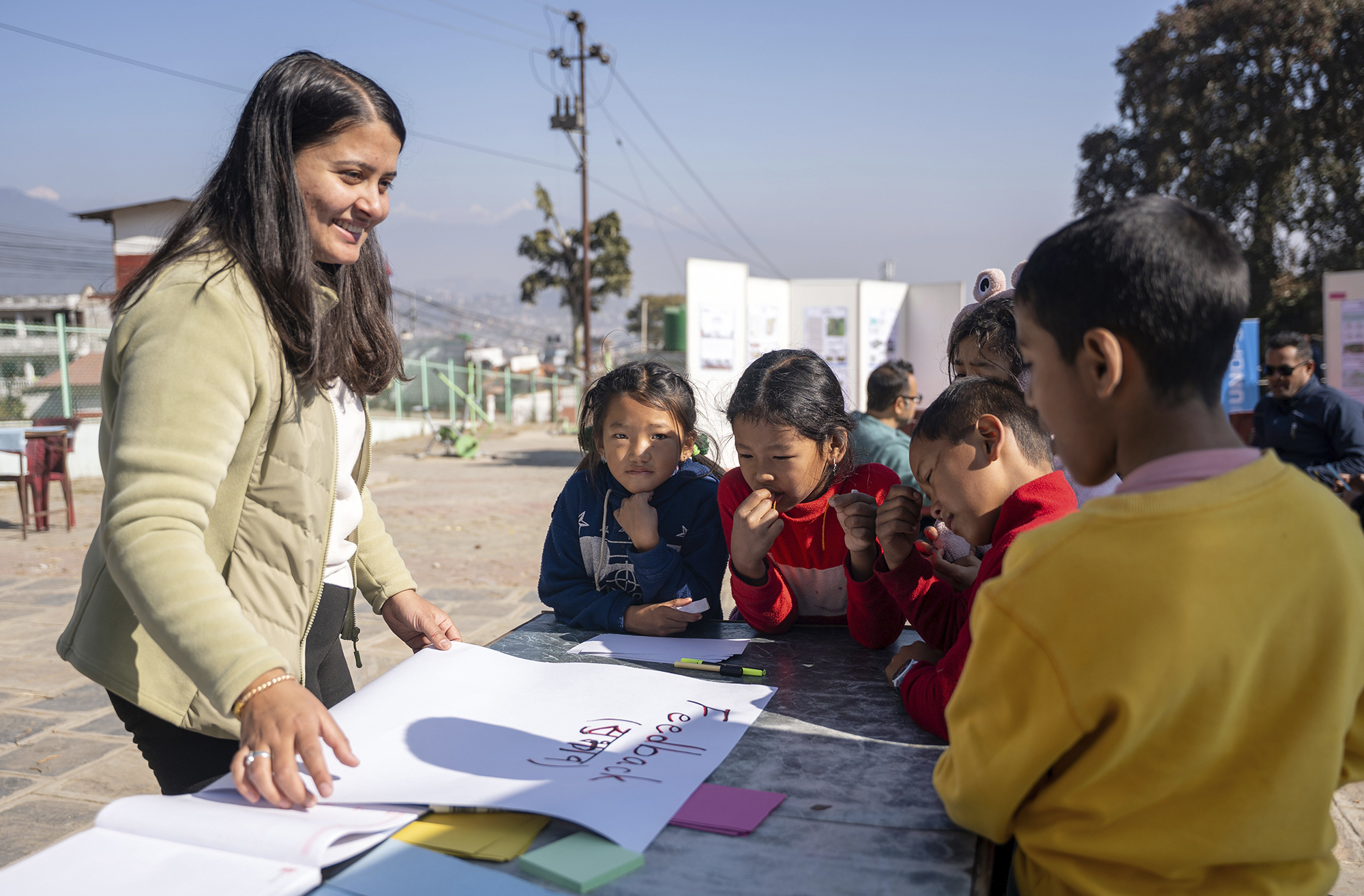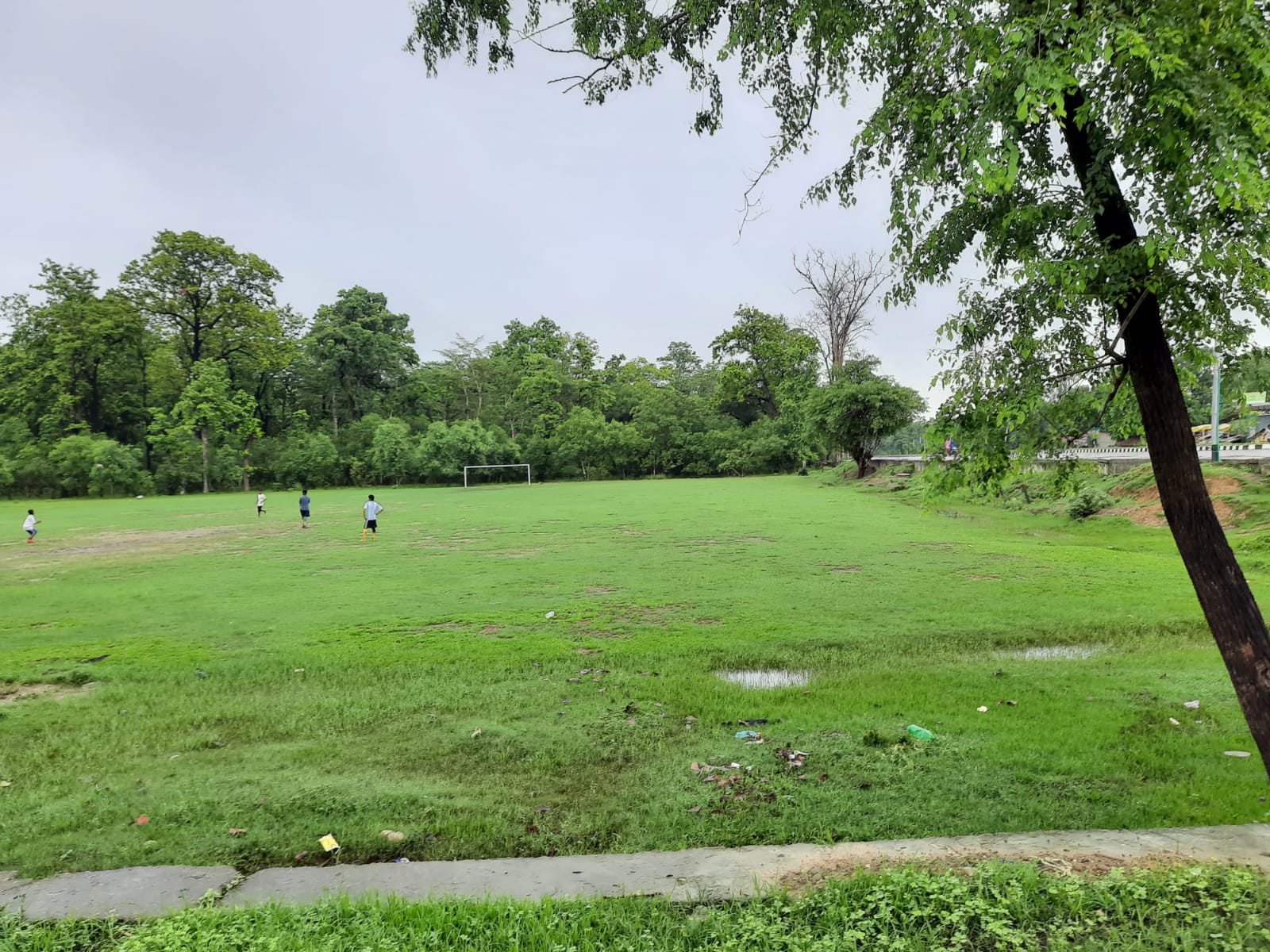[12 June 2011] -- As part of ceremonies to mark the 113th anniversary of Philippine Independence, the visiting Philippine Vice President and Housing and Urban Development Coordinating Council (HUDCC) Chairman Jejomar C. Binay signed off on a grant agreement with the Cities Alliance that would develop a National Slum Upgrading Strategy (NSUS).
The overarching goal of the NSUS is to guide the Philippine National Government and local government units (LGUs) in the preparation and implementation of effective policies and programmes on slum upgrading.
The NSUS is expected to provide a frame of reference and to support the key thrusts of the Philippine Government in their efforts to develop “Sustainable Communities”; formulate a “National Government Resettlement Policy” and update the National Urban Development and Housing Framework (NUDHF).
All parties to the urban debate in the country recognise that the current situation is both a major challenge as well as a great opportunity which, if properly managed, could improve current growth rates and help enhance the country’s economic and political influence within the region.

L to R: Celia Alba, HUDCC Undersecretary; Jose L. Cuisia, Jr., Philippine Ambassador to the U.S.; Jejomar C. Binay, Philippine Vice President and HUDCC Chairman; Billy Cobbett, Cities Alliance Programme Manager; Zoubida Allaoua, World Bank Director (FEU); and Lada Strelkova, Philippines Country Programme Coordinator.
How the NSUS will help
The proposed NSUS will frame the development of the National Government Resettlement Policy, including the difficult challenge of defining the parameters for the successful resettlement of communities. To achieve this consensus, the Government proposes an inclusive and participatory process, and the importance of including slum dwellers.
Further, the NSUS will support the implementation of the 2010–2016 Medium Term Philippine Development Plan (MTPDP), with its focus on promoting inclusive growth and addressing inequity as a central theme.
It will promote awareness, involvement, ownership, accountability and partnerships in slum upgrading initiatives among the concerned stakeholders such as LGUs, national government agencies, the slum communities, NGOs, the private sector, and civil society.

Upgrading in Valenzuela, Manila, Philippines. Photo: Farouk Tebbal/Cities Alliance
Community empowerment is at the core of any slum upgrading initiative. The NSUS formulation recognises that security of tenure is critical to the successful implementation of housing or resettlement policies and programmes.
Finally, the resulting investments (for example, housing, related infrastructure and social services for upgraded communities) will result in greater job opportunities, real estate development and intensifying housing finance and development in these cities, thus contributing to local economic development.
The grant will be executed by HUDCC, in partnership with the Homeless People’s Federation Philippines, the Philippine Action for Community Led Shelter Initiatives, and the World Bank.
Signing on behalf of the World Bank was Director for Finance, Economics and Urban (FEU) Zoubida Allaoua.
The ceremony, which was held in Washington, was also witnessed by Philippine Ambassador to the U.S. Jose L. Cuisia, Jr.; HUDCC Undersecretary Celia Alba; William Cobbett, Manager Cities Alliance; Lada Strelkova, Philippines Country Programme Coordinator; and Christopher Pablo, Task Team Leader of the project.
|
Fast Facts on Urbanisation in the Philippines -- The Philippines is one of the fastest urbanising countries in the region. At current rates, it is expected that the urban population will account for 75 per cent of the total national population in 25 years, and 84 per cent by 2050. -- Urbanisation drives surging economic growth. In 2007, the urban sector accounted for 70 per cent of the country’s Gross Domestic Product (GDP) with Metro Manila contributing about 33 per cent. -- This expansion of the urban economy is a steady magnet for increasing numbers of people thereby putting a tremendous strain on existing urban infrastructure and services and leading to a rise in numbers of slum dwellers. -- Metro Manila has the largest concentration of slum communities in the country. In 2000, it was estimated that approx. 727,000 families were living in slums. A recent Family Income and Expenditure Survey (2006) showed the proportion of householders living in informal settlements in Metro Manila had risen from 5.3 percent to 9.6 percent. -- The Philippines is home to a highly organised and vocal federation of the urban poor, led by the Homeless People Federation of the Philippines, an affiliate of Shack/Slum Dwellers International (SDI), a member of the Cities Alliance. |




